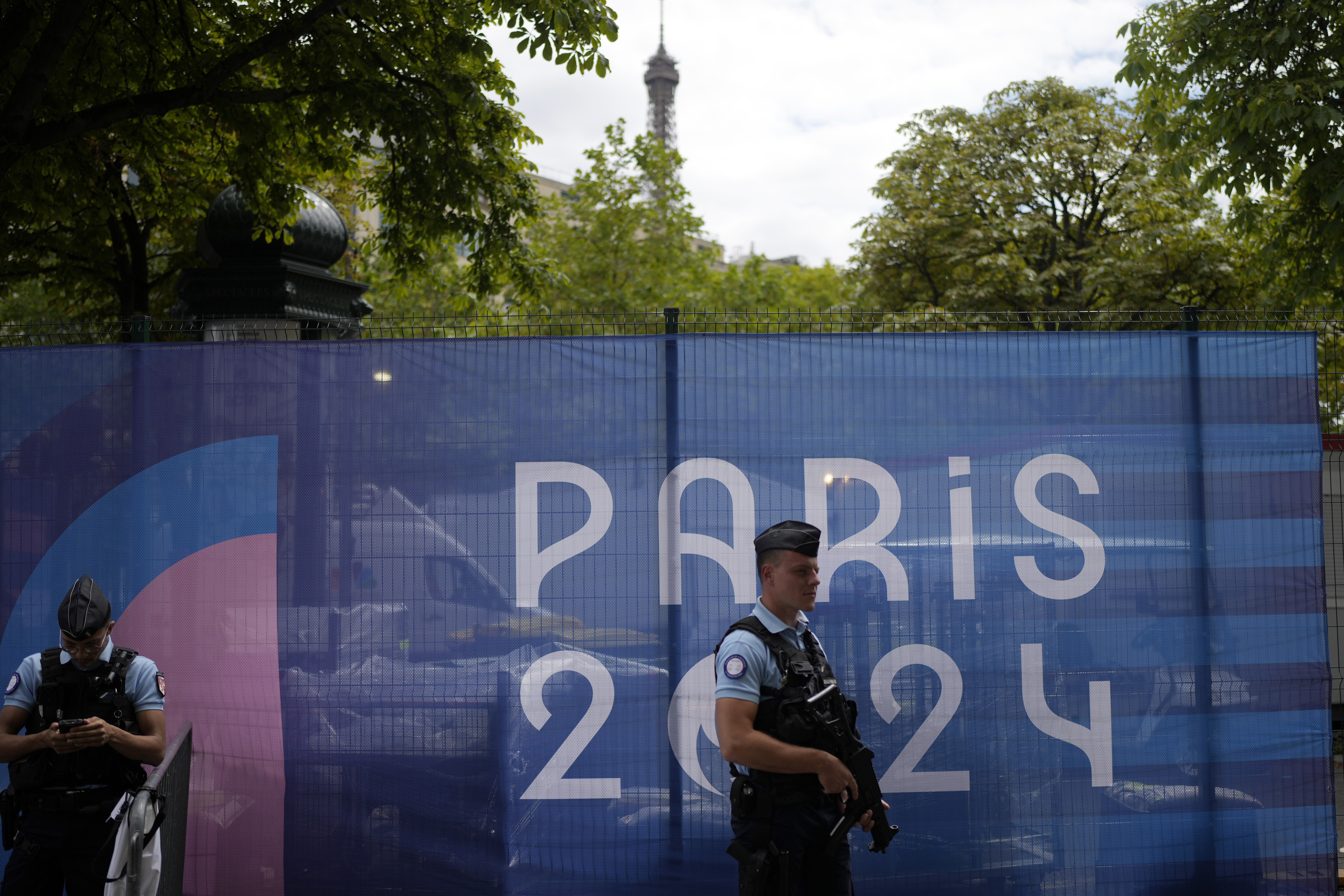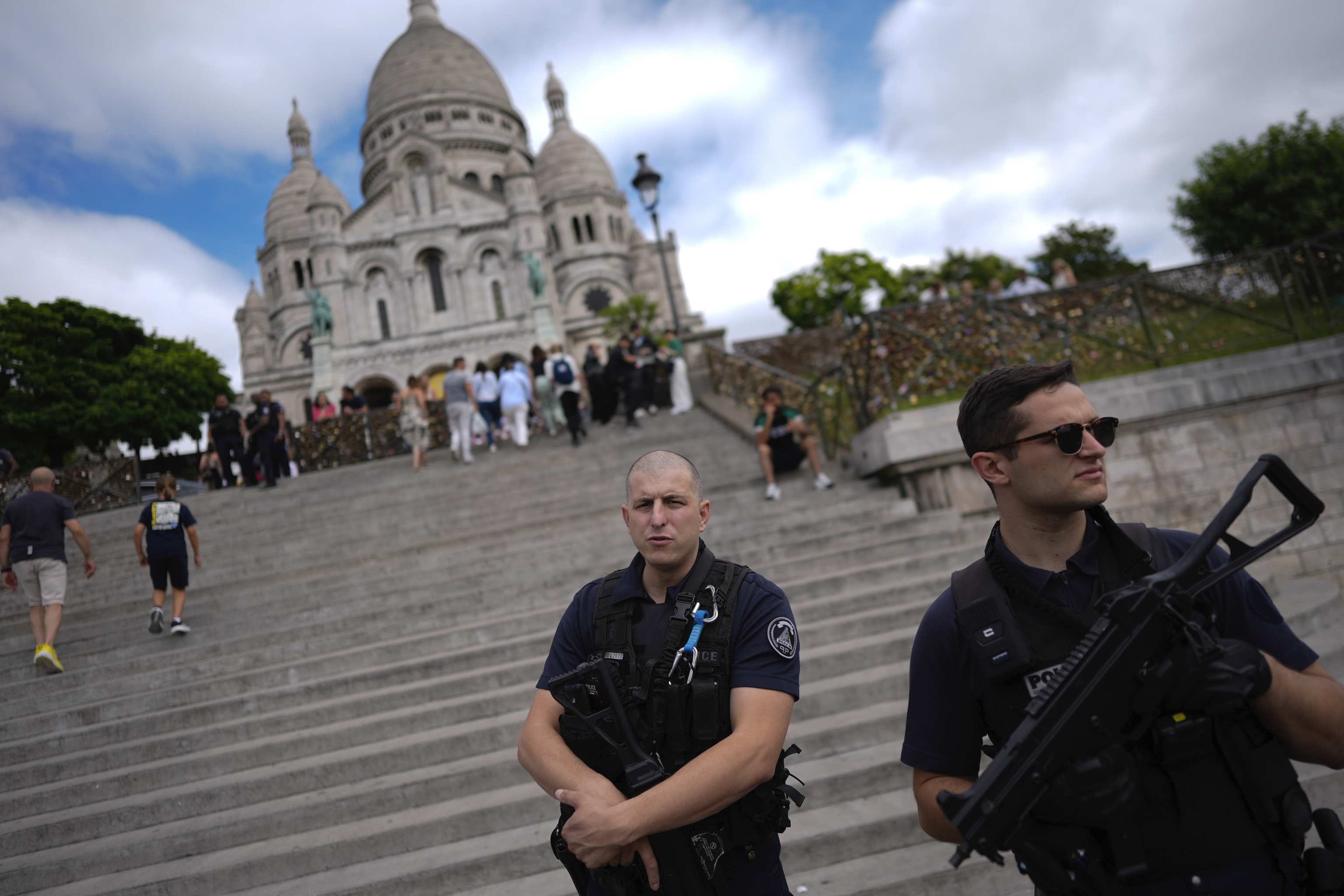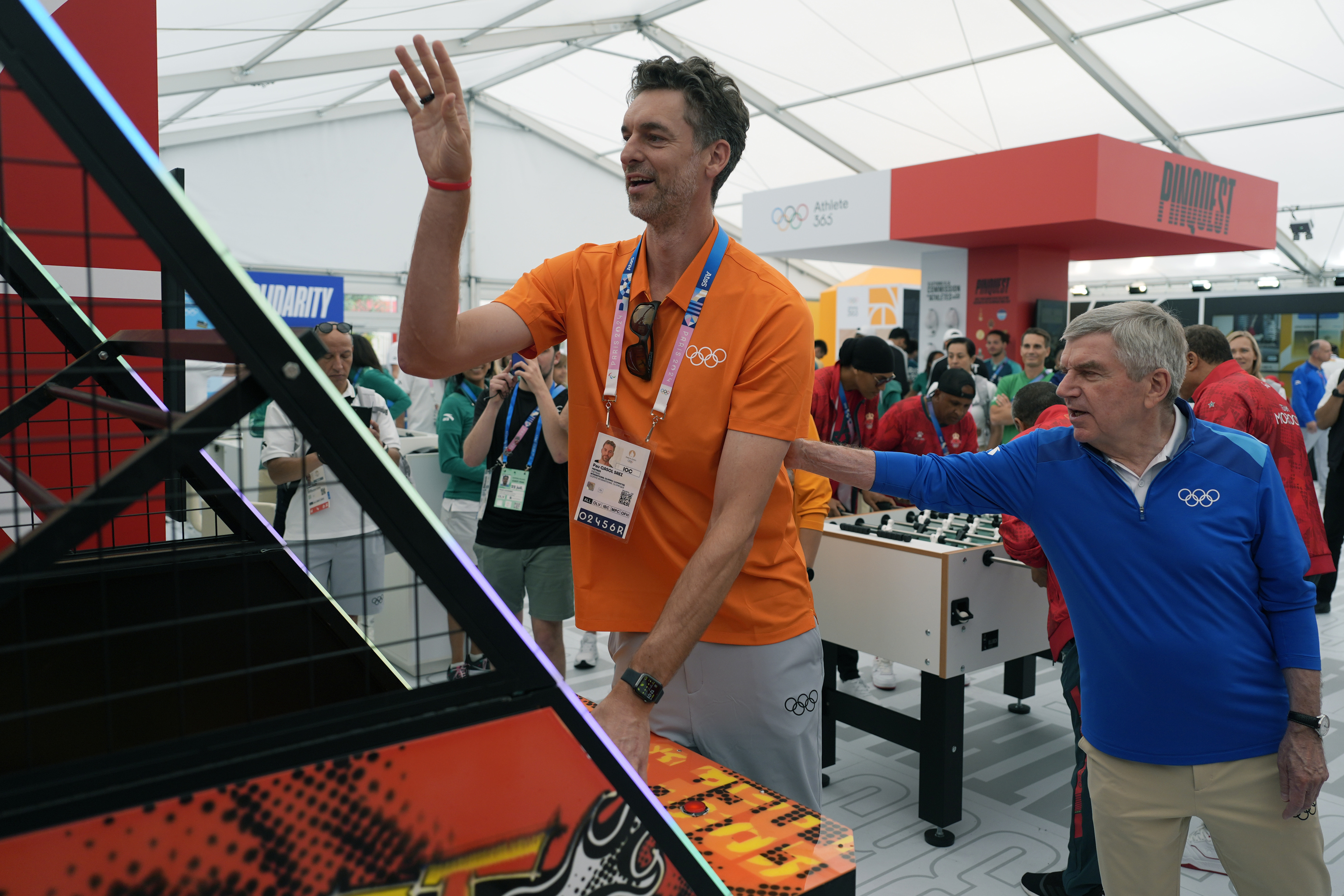Since last Thursday, enjoying a walk along the Seine or crossing from one side of the river to the other, by foot or by car, is a huge challenge. Last week, the anti-terrorism protection perimeter was activated in Paris for the upcoming Olympic Games starting on Friday, and the area where the opening ceremony will take place (on the Seine, for the first time outside a stadium) is shielded, fenced, and inaccessible.
Only people who have requested a permit can enter with a QR code. "There's the red zone, the gray zone... It's a mess, you don't know where you can move, and on top of that, half of the metro stations are closed. This week is going to be chaos," protests Marie, who works in a store near the National Assembly and has had to change her usual route to reach her destination every day.
Paris is currently a fortified city, hyper-surveilled by land and air, with military and police officers on every corner. Around 44,000 fences have been installed in the Seine area, usually full of tourists but today so deserted that it resembles the lockdown during the pandemic: there is hardly any traffic or noise. An unusual silence. Restrictions have begun on the metro network, so routes need to be recalculated.
Times are longer than usual, and crossing from one side of the river to the other, if not by subway, is complicated. Many Parisians have left the city. Those living in the restricted areas and merchants have had to request authorization, through the aforementioned QR code, to move around.
Five days before the start of the Olympic Games in Paris, there is a contained excitement for the event and, above all, a lot of concern for security. The preparations and the inconveniences generated by the anti-terrorism protocol add irritation to a population that has been losing enthusiasm. 60% of the French population is happy that Paris is hosting the Games, according to a survey conducted by Odoxa this week. In September, it was almost 80% in support, but it is decreasing as the date approaches.
In the Seine area, merchants complain about the impact of the restrictions on their businesses. Hotels thought they would make a fortune, but in recent months, they had raised prices so much that they ended up dissuading tourists, and at the last minute, they realized they did not have the full capacity they expected. "There are hardly any tourists, activity has dropped significantly since the restrictions were activated. This feels like lockdown," insists Laurent, in a gift shop in the area.
If this week many Parisians have taken the opportunity to leave, others are aware that it is a once-in-a-lifetime experience. "There are always inconveniences with these types of events, but it's only for a few days, and the experience is worth it. When else will you experience something like this in your city? Only once," explains Khaled, a bartender at a bar near the National Assembly, an area affected by the restrictions.
The construction works have finished, and now the scaffolding is being dismantled, green areas have been created on many streets, now pedestrianized, and grandstands have been set up on the bridges of the Seine to watch the ceremony, which will take place along six kilometers of the river. All streets are filled with Olympic flags, and in the parks, areas have been designated for celebrations. A total of 45,000 volunteers have been recruited for these weeks. The main concern is security: 68% of the French population is worried about potential issues in transportation or in the most touristy areas, fearing an attack. Metro patrols have tripled in the last three weeks. Around 50,000 people are expected in the fan zone. 65% are afraid to attend. France is at the highest level of terrorist alert, and on the day of the ceremony, 45,000 law enforcement officers will be deployed. Additionally, about 18,000 soldiers are mobilized, 10,000 in the Paris region. The capital has never been so protected. On the day of the ceremony, there will be an aerial bubble.
"We are prepared, and we are throughout the entire Olympic period, thanks to the security forces," said President Emmanuel Macron, who visited the Olympic village yesterday, built in Saint Denis, one of the popular neighborhoods in the Parisian outskirts. Macron emphasized that security "is the priority," and for this, a deployment like never before has been implemented. Foreign reinforcements have arrived, including hundreds of Spanish police officers and civil guards.
Only 40% of the French population wants the opening ceremony to proceed. There was a plan B, at Trocadero, much smaller and without the spectacle of seeing the boats parade along the Seine. Also, a plan C, at the Stade de France, in case of an extreme threat. Paris is also hosting these games amid a political storm, following Macron's decision to advance the legislative elections, which have left a Parliament divided into three blocs, none with enough majority to form a government. The existing government is in office precisely to manage the games.
The Paris before and after will be very different. In addition to the new neighborhood of Saint Denis, where the Olympic village is now located, the possibility of swimming in the Seine will change the city forever.


